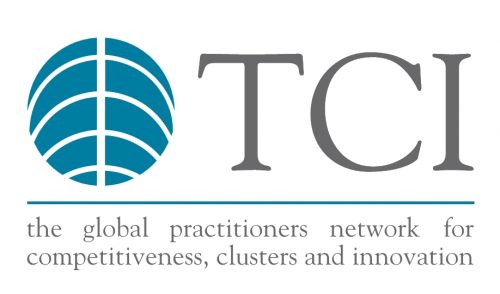
19/10/2016
Christian Ketels: “Thanks to clusters, Catalonia is much more attractive to foreign companies”
Christian Ketels: “Thanks to clusters, Catalonia is much more attractive to foreign companies”
Specialist in cluster policy Christian Ketels joined the 9th annual Catalan clusters meeting hold last month in Barcelona. In an interview with the Catalonia Trade & Investment public agency that works to attract foreign direct investment, he explained the importance of cluster policy in the attractiveness of the region.
Christian Ketels comes from the Institute for Strategy and Competitiveness (Harvard Business School) and is the President of TCI Network, a global platform of experts and organizations on clusters, innovation and competitiveness headquartered in Barcelona.
According to his definition, a cluster is a hotspot of activity in a certain type of sectors. It combines two aspects: it is a group of related industries -not just one sector- and is geographically concentrated.
In his opinion, Catalonia started with cluster efforts earlier than many other parts of Europe, and is globally seen as one of the leaders in this field. And it is still one of the regions that come up with new approaches, for example on using clusters as a platform for internationalization. Today, with more than 20 years of experience in cluster policy, in Catalonia 30 clusters are home to 1,700 firms, accounting for a turnover of 65 billion euros.
In Christian Ketels opinion, Catalonia actually is much more attractive to foreign companies (6,500 are currently set up in Catalonia) thanks to its clusters because they immediately get into an ecosystem of partners rather than just a greenfield site to invest in.
Christian Ketels comes from the Institute for Strategy and Competitiveness (Harvard Business School) and is the President of TCI Network, a global platform of experts and organizations on clusters, innovation and competitiveness headquartered in Barcelona.
According to his definition, a cluster is a hotspot of activity in a certain type of sectors. It combines two aspects: it is a group of related industries -not just one sector- and is geographically concentrated.
In his opinion, Catalonia started with cluster efforts earlier than many other parts of Europe, and is globally seen as one of the leaders in this field. And it is still one of the regions that come up with new approaches, for example on using clusters as a platform for internationalization. Today, with more than 20 years of experience in cluster policy, in Catalonia 30 clusters are home to 1,700 firms, accounting for a turnover of 65 billion euros.
In Christian Ketels opinion, Catalonia actually is much more attractive to foreign companies (6,500 are currently set up in Catalonia) thanks to its clusters because they immediately get into an ecosystem of partners rather than just a greenfield site to invest in.
More news
30/07/2014
Barcelona among the top 10 cities in the world
24/07/2014
Researchers prove the effectiveness of a new drug against malaria using synchrotron light
17/07/2014
Creation of the Health Technologies Cluster
10/07/2014
An international team of scientists led by researchers from the UAB creates the world's first magnetic hose
03/07/2014
CaixaBank and Oracle set up a Big Data Centre of Excellence in the Barcelona Synchrotron Park
26/06/2014
The Barcelona Supercomputing Center hosts two important new international projects









